A day up the mountain
It was a cold, brisk morning on the mountain. Breathtaking views stole our eyes away when we could see through the fog. We rode up in the back of the truck, getting a full upper-body workout as we went along the steep, rugged, rocky road.
On the way up, we pass coffee pickers, banana trees, corn harvests. We pass the place where many of these people report for duty to attempt to make a living. They arrive early and don’t leave until their work is all done. There’s no clocking in and out. These are the very same people who would be patients at El Ayudante. Many of them would have to walk to the clinic for care; a long journey for sure, but much closer than the nearest hospital.
The views continue to be astonishing. There are really no words for such beauty. My only response is silence. Fingers of shadows climb the mountains, resting gently where trees reside. The fog continues its journey downward. It tries to fight a losing battle with the sun.
As we pass house after house, the question presents itself: how did they get all this stuff up there? It could not have been easy. Building here was out of necessity, not choice. And the thing build frequently on this mountain? Second only to houses: churches. La Iglesia Pentecostal. La Iglesia International. They build their church on the mountain, on the rock. How fitting.
The pastor greets us and thanks us for coming. He shakes each of our hands. Twenty-two tickets for care were handed out a few days ago. Targeted were those who can’t make it down the mountain. “It is not the healthy, but the sick who need a doctor.” Jesus’ words ringing through my ears.
We set up in a church that looks and seems barren. Unlike the one from the week before, it has a finished floor and doesn’t have a pile of rocks in the corner. There is a bed and a few plastic chairs, but not much else. This is in a building to the right of the actual church which is complete with pews and an altar. Moments later, we stand in a circle to pray. I feel a hand on my side. Hondurans are physical people. Someone I just met two days ago kissed my cheek today when she saw me. I’ll be going to her place for dinner tomorrow.
Windows are open everywhere for ventilation but more so for light. Electricity is not the most common thing in this area, neither is running water. It is a different world in Honduras; even more so on the mountain.
In an effort to provide some soft of privacy, a sheet is brought in to be used as a curtain. A couple guys volunteer to help move a shelf to set the sheet upon. I wonder if this is one of the only things they’ll do today. Momentary purpose.
Patients aren’t waiting in line and no one shows up at the “start time” of the brigade. This, too, is typical of the culture: time doesn’t designate much. People show up when they show up…and that’s more than okay.
Most patients who come have showered, cleaned up and are wearing their finest clothing. They hold the hands of their little ones and make their way into the pop-up clinic, scared and skittish. Slowly, a line forms as more and more people show up with their tickets. At an elevation of 5,000+ feet, we wait with them. Their files are started and the “waiting room” fills up. Umbrellas cover heads from the sun. Calloused feet and leathered skin line up to be seen. For some, this may be the first time they’ve ever seen a doctor. Even with eight or nine kids, even with serious injuries. El primero ves.
A little boy wearing a very used Batman shirt stands at the door. His shirt too short and his shorts too small leave his belly button in view for all to see. He looks at the makeshift waiting area, at the blood pressure machine and other medical devices and he’s not quite sure what to make of it.
I don’t take anyone’s blood pressure or inject anyone with anything today. But I watch, I see, I observe. I smile at all who come through. I greet them with a handshake and a look into their eyes. I pray, silently, for their healing and for hope in all circumstances.
And I write. I write and share this with you who maybe have eyes that have not seen this kind of need. I write and share the collective story of what was experienced today in the hopes that someone somewhere would have more gratitude today when they’re in line, at the doctor, doing whatever.
I write to tell you that lives were changed today — that communities are transformed up on this mountain and in the valley. I write to tell you know that El Ayudante is doing work that matters.
Maybe you will never make it up this mountain. Maybe your eyes won’t see what I’ve seen; your hands may not shake hands with strangers who quickly become friends. Maybe the poverty you just read about feels overwhelming and like there’s not much you can do about it. I feel like that, too. The day on this mountain was unproductive and inefficient for me by the world’s typical standards. Yet it was one of the best days because I was able to observe and write it down and share it with you. I was able to loan you my eyes and you were kind enough to take the time to read about it. Thank you.
Maybe reading this moves you. Maybe reading this makes you realize that you can go without something tomorrow so that someone else can go with that which is necessary to them. The average cost for a medical or dental appointment at El Ayudante is fifteen dollars.
– Guest Blogger & EA Volunteer: Jes Steinberg
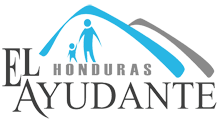
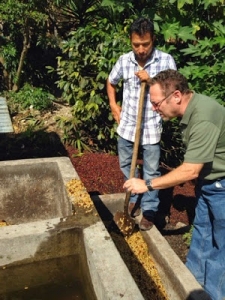
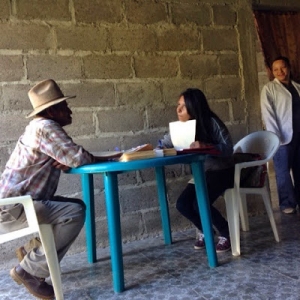
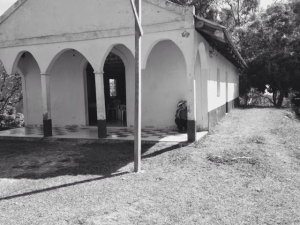
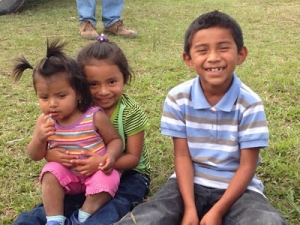
0 Comments